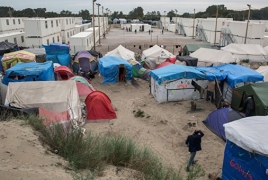
The peak of the migrant crisis in Europe has passed but many of those who came are here to stay and governments must focus on helping them integrate, the OECD said Thursday, June 29, according to AFP.
In the first six months of this year, about 72,000 migrants landed on Europe's shores, around 12 times fewer than in the second half of 2015 when the crisis peaked, the Paris-based body said in its annual report on international migration.
But many of those who came, fleeing war or persecution, "are likely to stay for some time, at least until their home countries are safe again", said Stefano Scarpetta, OECD Director for Employment, Labour and Social Affairs, in the report.
The countries who took in migrants "should focus on helping refugees who are likely to stay in the host country settle and integrate in the labour market and society," he said.
"This calls for a rethinking of both domestic policies and international cooperation," Scarpetta added.
Despite numbers coming to Europe tailing off, in 2016, around five million people still migrated to OECD countries, mainly fleeing war in three countries: Syria, Afghanistan and Iraq.
The figure compared to 4.7 million entries in 2015, making in the third successive year of rising arrivals.
Turkey alone is currently providing temporary protection for three million Syrians.

